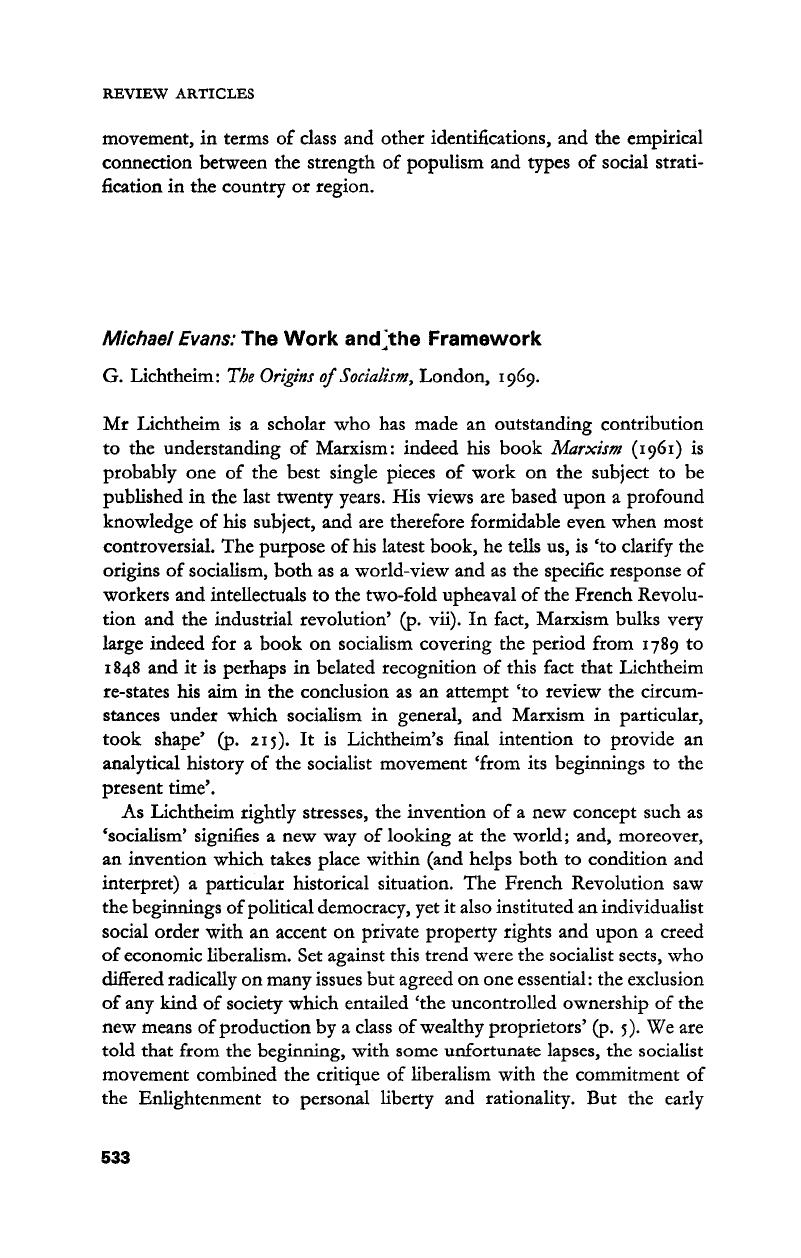No CrossRef data available.
Published online by Cambridge University Press: 28 March 2014

1 MacDonald, J.: Rousseau and the French Revolution 1792–91, London 1965, p. 53 Google Scholar.
2 Knox, T.M., ‘Hegel and Prussianism’ Philosophy 15 (1940) pp. 51–63.Google Scholar
3 See K. Marx: Early Writings (trans. T. B. Bottomore) pp. 152–3; and The Communist Manifesto (S. W. I. 61) where Marx and Engels comment: ‘The revolutionary literature that accompanied these first movements of the proletariat had necessarily a reactionary character. It inculcated universal asceticism and social levelling in its crudest form.’ Note, by the way, that in delineating two stages of communism in the EPM, Marx is solely concerned with developments in theorizing about communism in the early stages of capitalism, not with predicting stages by which a future communist society will come about. This latter interpretation is one of the muths prepagated by Tucker, R. C., Philosophy and Myth in Karl Marx, Cambridge, 1961, pp. 154–6Google Scholar; and repeated by Avineri, S., The Social and Political Thought of Karl Marx, Cambridge, 1968, pp. 222–3CrossRefGoogle Scholar. Nor does Marx’s description of the first stage of future society in the Critique of the Gotha Programme as ‘closely resemble’ the EPM account as Avineri claims (ibid., p. 225).
4 Marxism, London, 1961, pp. 223–30.
5 Interview in New York World, 18 July 1871.
6 Speech at Amsterdam to the Hague Congress delegates (8 September 1872) in K. Marx and F. Engels, On Britain (2nd Ed. Moscow, 1962). at pp. 494–5. Avineri (1968) pp. 217–18, claims that ‘the wielding of power as a distinct political means admits that circumstances … are yet unripe for change … for Marx physical power will either fail or prove to be superfluous. It is true that Marx was never an exponent of pure revolutionary activism independent of any prerequisite socio-economic conditions: but neither was he an economic determinist who thought that all he had to do was to wait with arms folded for the inevitable to happen. Marx and Engels always said German circumstances would require the use of force. We can only assume that they meant what they said.
7 Note Engels’s criticisms of the draft Erfurt Programme of 1891 (first published in Neue Zeif XX, 1902) ; his introduction to the 1895 edition of Marx’s Civil War in France. Lichtheim (Marxism, p. 230, fn. 2) claims that the censoring of the SPD editors did not radically alter Engel’s views in the introduction. But Engels certainly thought they did, making him an exponent of legality and non-violence at any price (Engels to Kautsky I April 1895 ; and to Lafargue 3 April 1895, in Engels-Lafargue Correspondence, III, p. 373). Engels expressed grave misgivings about the growing gap between SPD practice and the revolutionary tradition. See Engels to Fischer, R. (8 03 1895) in Steinberg, H. J., ‘Revolution und Legalität’, International Review of Social History XII, 1967, pp. 177–89. at pp. 182–5Google Scholar.